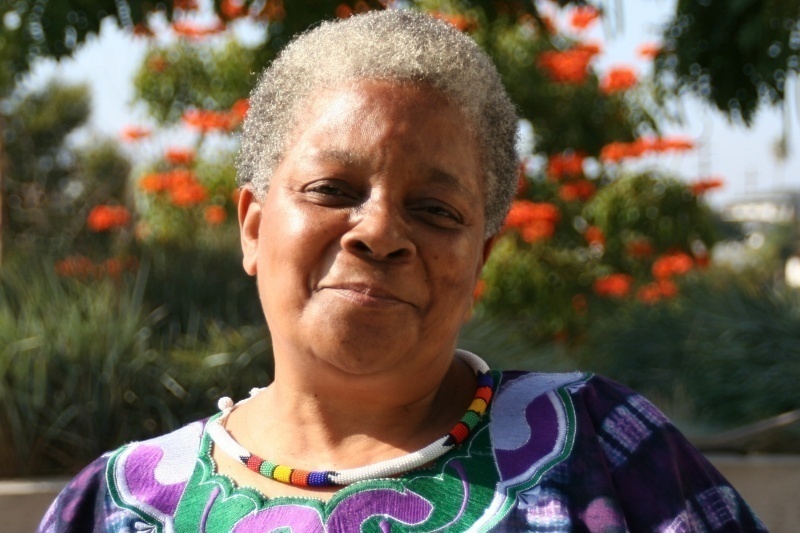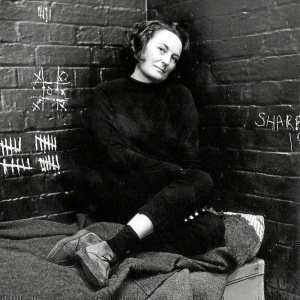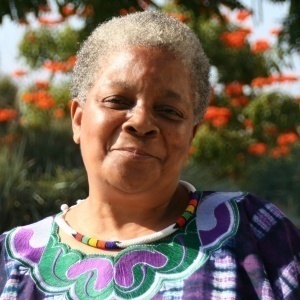Zandile Zungu Nhlengetwa is a coordinator and promoter of community projects aimed at consolidating peace and supporting the underprivileged in South Africa. The youngest of five children, she was born in 1955 in Lamontville, a township outside Durban, into an austere, though not poor Zulu family.
In 1975 she graduated to become a teacher. Four years later, contrary to her parents’ wishes, she married Thamsanqa Nhlengetwa (Thami) and had two children. Their relationship, which was to determine key decisions in her life, was initially fraught with difficulties. The problems stemmed from her husband’s work within the African National Congress, which forced him to spend long periods away from home. Zandile was obliged to live with her mother-in-law, who expected total submission from her. She was also worried that she and her husband had little in common since the Evangelical principles with which she had been brought up were at odds with the violent methods practised by the ANC. Her doubts vanished, however, when Thami stopped travelling from one place to the next and settled permanently with his family, moving with them in 1981 to the outskirts of Soweto: Zandile appeared to have achieved her dream of a peaceful and satisfying family life.
In 1989, however, this dream was brutally shattered by: Thami was killed and it became immediately clear that he was the victim of a political assassination. This traumatic event was to change the course of Zandile’s life. The priority she had previously given to the private sphere gave way to a public commitment, and to heightened awareness of the problems of her people. Her initial religious approach was superseded by her husband’s political faith. Even her job as a teacher became a way of turning her students into responsible citizens, aware of their own rights. This was no easy task, because she first had to channel the violence that pervaded the vast majority of young people towards positive goals. In the eyes of the conservatives, Zandile’s teachings were purely political and for this reason, in 1993, her house was burnt to the ground in an arson attack.
Zandile no longer felt safe in Soweto, fearing especially for her children. She therefore decided to go back to her native KwaZulu-Natal. There, however, she found an on-going civil war between two factions of the black population: the African National Congress and the Inkatha Freedom Party. The conflict had already meted hundreds of victims and destroyed entire communities. So Zandile got to work organizing the “Survivors of violence”, where she made good use of the skills honed in her previous efforts at educating young people in the ways of peace. She was sent to Bhambayi, a collection centre for thousands of refugees fleeing from the civil war. Her task was to single out people traumatized by violence and provide some kind of assistance for them. One year after national reconciliation and the election of Nelson Mandela, this desolate region was the most violent not only in South Africa but in the whole world.
Here, after overcoming the diffidence of the “Development Forum”, an organism set up to promote reconciliation, where members of both the ANC and the IFP cooperate on an equal footing, Zandile tackled the problem of violence among the young. Her method is pragmatic: she brings young people together and shows them how, behind an “enemy”, there is simply another human being. Most of the young people that Zandile has worked with have experienced episodes of atrocities committed or suffered, which arouse feelings of vendetta and of constant fear, inducing all of them – boys and girls alike – to carry a weapon with them at all times.
Over a ten-year period, Zandile gradually gained the population’s trust and, despite serious difficulties, resistance and even murders, she achieved major successes in curbing episodes of violence.
In 2004 her adopted son was murdered by two young thugs. Despite her despair, this tragic event indirectly led to a major turning point in her life and future work. After doing her utmost to ensure that the two young criminals – both minors – received the maximum sentence, Zanile was shocked when the mother of one of the boys accused her of being a woman of power. Zandile realized that she had been driven by revenge caused by her own suffering and she tried to make amends by contacting both the boys in prison and their mothers. It took her a long time to convince the two women to accept her offers of dialogue and reconciliation. Zandile saw dialogue as an opportunity to tackle the young mothers’ problems, above all of poverty and ignorance. Little by little she attracted other women and, in the end, set up a women’s group devoted first and foremost to helping women in trouble, also creating an opportunity for reflection and for cultural and political growth. In 2006 this group officially becamse the “Harambe Women’s Forum”.
Since 2008 Zandile has contributed to the Peace Makers Program set up by the Joan B. Kroc Institute For Peace & Justice at San Diego University in the USA.
Two other fields in which she is active involve rescuing and educating street kids and supporting communities with people suffering from AIDS.
Zandile Nhlengetwa
campaigner for dialogue and reconciliation
Gardens that honour Zandile Nhlengetwa
You can find a tree in the Virtual Garden Gariwo's Stories.





